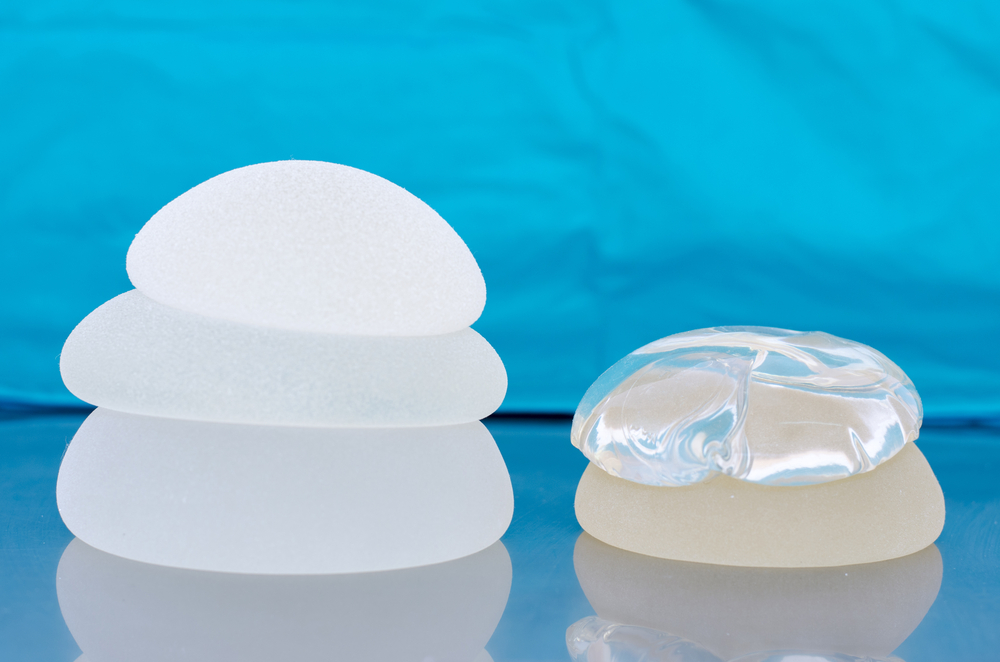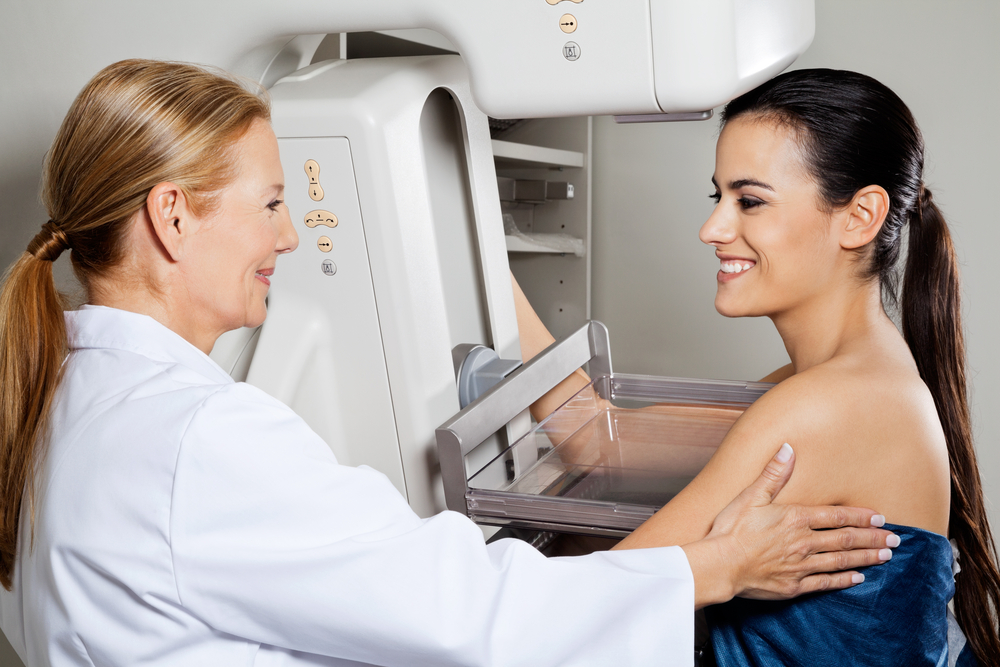Many of you reading this have likely found reports on the Internet that assert a link between breast implants and cancer risk. So is it true?
If you are considering breast augmentation surgery, or if you have already undergone surgery, it is highly likely that you have encountered some of this material and are concerned about the purported connection between breast implants and cancer.
Recent studies do in fact indicate that women with breast implants may present higher risks of developing certain types of cancer. In 2011, the United States Food and Drug Administration (FDA) identified a possible connection between breast implants and the development of anaplastic large cell lymphoma (ALCL), a rare type of non-Hodgkin’s lymphoma.
At the time of the FDA’s study, approximately 60 cases of ALCL had been identified in women who had breast implants, out of an estimated 5-10 million women who had received breast implants from 1998-2009 worldwide. In February 2017, the FDA reported that it had received a total of 359 medical device reports (MDRs) of breast implant-associated anaplastic large cell lymphoma (BIA-ALCL).
While the silicone and saline envelopes that are used in breast augmentation surgery are constantly subject to an extensive and rigorous range of checks by the FDA, at the current time the organization considers that “women with breast implants have a very low but increased risk of developing ALCL compared to women who do not have breast implants.”

Breast Implant Safety and Regulation in the United States
The first breast implant was safely carried out on a Texan mother in 1962 by two pioneering plastic surgeons, Frank Gerow and Thomas Cronin. This landmark procedure would revolutionize plastic surgery, with breast augmentation gradually becoming the most popular cosmetic surgery procedure in many countries around the globe.
Reassuringly, following the astronomical growth in popularity of this procedure, the General and Plastic Surgery Devices Panel of the FDA responded by investigating the safety, effectiveness and security of breast implants to ensure the well-being of patients.
A brief glance through the past three decades shows the significant measures undertaken by the FDA to regulate breast implants. Perusing this timeline reveals that breast implants have been subject to rigorous directives and controls to guarantee the safety of women receiving augmentation surgery, with more recent attention and research devoted to researching any possible links between breast implants and cancer.
- 1988: The FDA classified all breast implants (both saline and silicone) as a Class Three medical device. Class Three devices are subject to the strictest controls and rigors to guarantee their safety and effectiveness.
- 1991: The FDA sponsored a conference regarding the use of silicone in medical devices. This conference facilitated the exchange of scientific information and views concerning the use and application of silicone in medicine. 1991 also saw the FDA publish a regulation requiring manufacturers of silicone gel-filled implants to demonstrate assurance of safety. This measure was known as pre-market approval for Class Three medical devices.
- 1992: The FDA placed a moratorium, or delay, on the use of silicone gel in breast implants until sufficient safety information had been made available.
- 1996: The FDA received a petition from the Y-Me National Breast Cancer Organization, and other related agencies, requesting that the stringent restrictions on silicone gel-filled implants be relaxed for women who desired reconstruction following a mastectomy. The petition was denied.
- 1997: The Department of Health and Human Services asked the Institute of Medicine to conduct an unbiased and independent review regarding the safety of silicone gel implants. A committee of experts was formed to assess the relationship of silicone implants with diseases such as cancer, and also to determine the accuracy of mammograms conducted on women with implants.
- 1999: The Institute of Medicine released a comprehensive report entitled Safety of Silicone Breast Implants on the safety of both silicone and saline filled gel breast implants. The report determined there was insufficient evidence to establish that saline or silicone implants cause systemic health effects, such as breast cancer, nor were there any new health or safety issues associated with either type of implant. This report is available and can be read for free at this website.
- 2004: The FDA released a breast guidance document for saline, silicone and alternative breast implants, outlining new recommendations such as mechanical testing, clinical study information and labeling.
As is evident in the timeline above, breast implants have been subject to consistent and meticulous testing throughout the past four decades, resulting in less than ten saline and silicone implant manufacturers that have undergone the various cycles of pre-market approval and research to make it onto the market.
Also, it is worthy to note that on more than one occasion, the FDA was petitioned by organizations supporting women affected by breast cancer to relax regulations, in order to make silicone implants more available.
Independent Studies Researching Breast Implants and Cancer Risk
While it is comforting to know that within the United States breast implants are thoroughly investigated and evaluated for safety before they arrive in plastic surgery clinics, reviewing medical literature from around the world also offers revealing insights.
A 2007 study published by the prestigious Plastic Reconstruction Surgery Journal investigated the effects of silicone implants on cancer occurring at other sites in the body (apart from the breast). The author undertook an epidemiologic review of previously published studies, and found that none yielded findings that supported a correlation between breast implants and malignancies caused by foreign bodies in parts of the body.
Whilst he did observe that some research noted slightly elevated risks of cervical, vulvar and lung cancers among patients who had undergone breast augmentation surgery, the study reported that it was highly likely that such cancers arose as a result of lifestyle choices (such as smoking cigarettes or sexual behavior), rather than result from breast implants. These results are consistent with numerous other studies.
Another study published in the Plastic and Reconstructive Surgery journal in 2001 undertook an investigative analysis of three issues: if breast implants led to an increased risk of breast cancer or any other type of cancer, if breast implants delayed the detection of breast cancer, or if breast implants increased the recurrence of breast cancer in former patients.
This meta-analysis examined results across multiple relevant epidemiology studies. The results of the study supported the overall conclusion that women with breast implants are not at any additional risk for breast cancer or other cancers, they are not more likely to be diagnosed with malignancies at a more advanced stage, and are not likely to experience a recurrence of breast cancer.
A 2014 study in The Journal of Clinical Oncology found that while the connection between breast implants and ALCL is rare, it does exist.
Breast Implants May Decrease the Likelihood of Breast Cancer
Some reports have claimed that breast implants may interfere with the efficacy of mammograms to detect tumors, which means that breast cancer among implant patients is supposedly diagnosed at a more advanced stage. However, there is little to no evidence to support this.
Several studies published in the Journal of the National Cancer Institute suggest that women with breast implants do not have more advanced breast cancer at diagnosis, nor a worse prognosis than women without implants. In fact, research suggested that the risk of breast cancer among women who have had breast augmentation surgery might actually be reduced.

A Swedish study published in the same journal in 1998, with a follow-up in 2006, also observed a decreased likelihood of breast cancer among Swedish breast implant patients, and no overall increased risk of cancer.
Further evidence was provided in a 2015 study published in the American Society for Aesthetic Plastic Surgery that carried out a review of seventeen relevant medical studies, once more affirming that there was no evidence to support the argument that cosmetic breast implants are linked to breast cancer.
So why have breast implants been linked with lower rates of breast cancer? The Swedish study explained that silicone might have an anticarcinogenic effect, as some studies on silicone have reported that it retards the growth of human breast cancer cells in the laboratory.
Other studies have shown that women who have breast implants tend to have children at a younger age, a protective factor for breast cancer. Another possible explanation is that women who seek breast augmentation are likely to have smaller breasts and less glandular tissue, which has also been connected to lower rates of cancer of the breast.
Texas-based plastic surgeon, Dr. Jennifer Walden, also says, “The academic literature has shown that women with breast implants actually may pick up cancers at the same time or even earlier, given that they are more in tune with their breast anatomy after having undergone breast augmentation and doing implant massage”.
She adds, “Most plastic surgeons would agree that their postoperative breast augmentation patients are far more obsessive about changes in the appearance or feel of their breasts after the implants have been placed than the average woman who does not have implants.”
The academic literature has shown that women with breast implants actually may pick up cancers at the same time or even earlier.
Dr. Jennifer Walden
There is little doubt that breast implants have been thoroughly studied and are still considered to be safe by the vast majority of the medical community.
Dr. Peter Aldea, a plastic surgeon from Memphis writes, “Breast implants have the rather dubious honor of having been the most intensely studied implant in the history of mankind. More money and human hours were spent studying breast implants than heart valves, defibrillators, pacemakers, shunts, artificial blood vessels, hip and knee joints and all other implants combined. Despite hundreds of scientific articles scrutinizing implants, there is little scientific evidence that breast implants cause cancer.”
Since breast augmentation first began being offered as a cosmetic procedure in the 1960s, millions of women all over the world have enjoyed the benefits. If you have been considering breast implants, please speak with a board certified plastic surgeon to discuss all of the risks and benefits of them.









